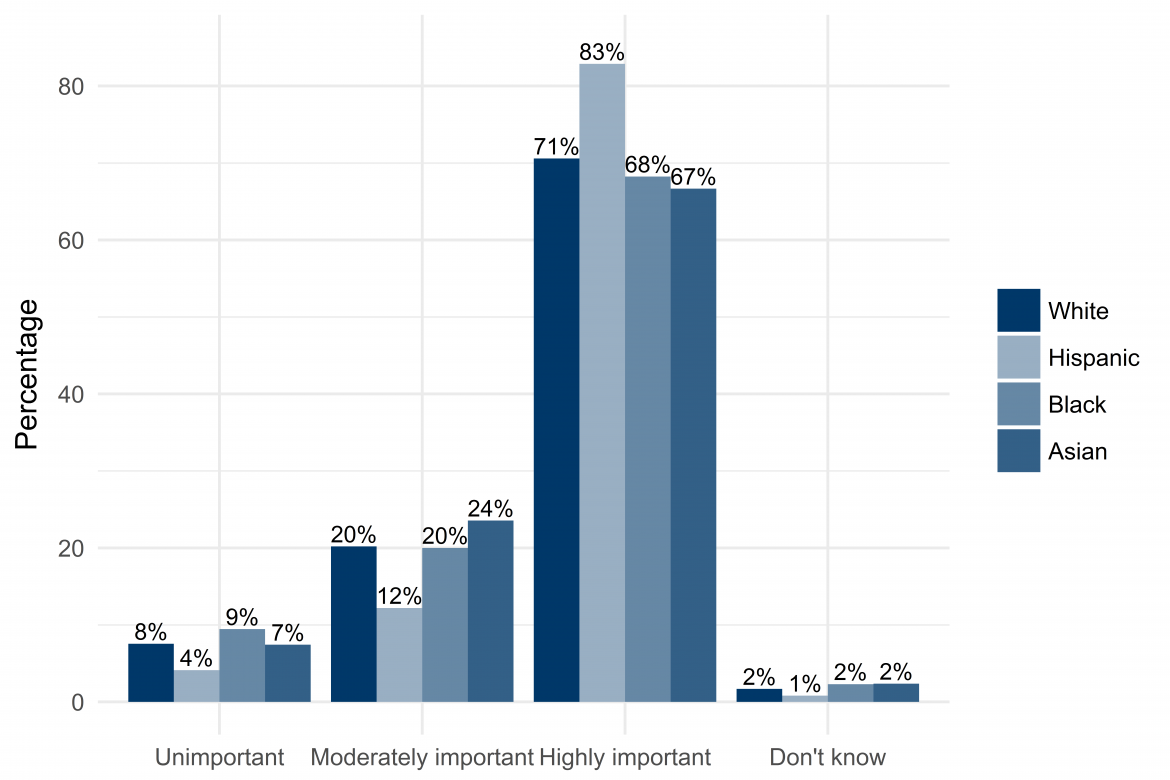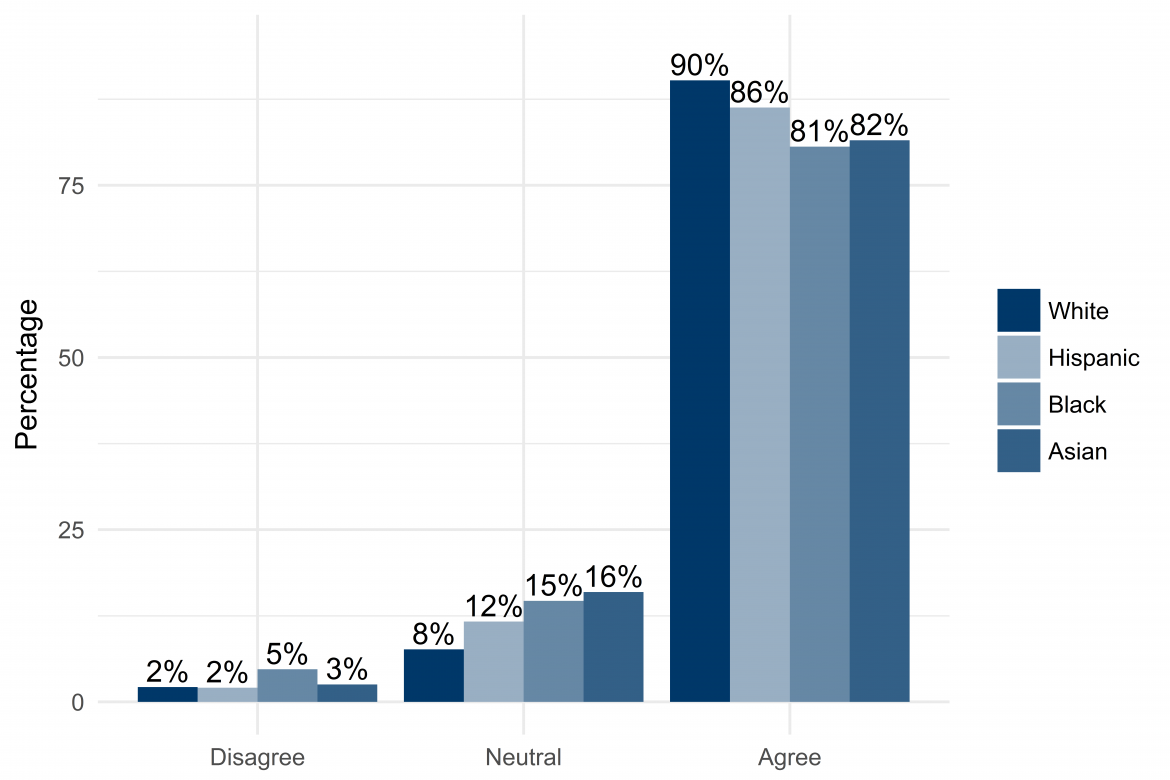Benefits of nature

Two-thirds or more adults, across race and ethnicity, rate contact with nature as "very" or "extremely" important to their physical health.
Question: "In your opinion, how important is getting outdoors and into nature for helping your physical health?"
N=5,459 | Adults 18+
Regardless of race and ethnicity, the adult Americans who participated in this study saw nature as important for their physical health and emotional outlook.
Common ways to value nature

Across race and ethnicity, the majority of adult Americans consider teaching a child how nature works to be as important as teaching them reading, writing, and math.
Question: "To what extent do you agree or disagree with the following statements? ...An understanding of how nature works is as important to a child's education as reading, writing, and math."
N=5,459 | Adults 18+
Adult Americans of different races and ethnicities valued nature in similar ways. Most associated certain smells and sounds of nature with happy memories. Most felt curious about something especially attractive in nature. Most believed that teaching children how nature works is as important as teaching them other school subjects. Most find peace in nature, and most feel spiritually connected to something greater when outdoors.
Different barriers to nature, part 1
Hispanic, black, and Asian adults were more likely to feel aversion to being alone outdoors.
Question: "To what extent do you agree or disagree with the following statements?"
N=5,459 | Adults 18+
Hispanic, black, and Asian adults surveyed were different from their white counterparts in some important ways. One of these was that they felt more aversion to being alone in nature or the outdoors. Black adults were especially concerned about allowing their children to be outdoors on their own. Large portions of nonwhite respondents said they prefer to stay on paved paths when they are outdoors.
Different barriers to nature, part 2
Hispanic, black, and Asian adults saw a number of barriers as more important in hindering their interests in nature, including few friends to be with, not enough places nearby to enjoy the outdoors, and a perception that the outdoors is unsafe.
Question: "How important is each of the following in hindering your interests in nature today?"
N=5,459 | Adults 18+
Hispanic, black, and Asian adults were more concerned about being alone outdoors and felt more constrained by other concerns in life to experience the natural world to the extent that they wished. Compared with white adults, more Hispanic, black, and Asian adults reported a lack of social support for their interests in the natural world, and a lack of financial resources to pursue their interests in nature. They also said other things are more important in their lives.
